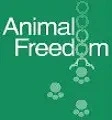Prevention through awareness
Important in the prevention of animal abuse is awareness. People have to recognize the tendencies within others and themselves that inevitably lead to the suffering of animals.
Understanding the root causes
There are many different causes that can often be tracked down to less noble motives, such as vanity, loneliness, neglect, sadism.
Neutral terms are competitions (contests and shows with animals), the need for company and entertainment, sports and games.
Why people avoid the truth
Whenever the consumer realizes in how far the consequences of their daily life works on the situation of animals, many of them would be struck by the facts. This is partly the reason why not many would try to find out what the consequences are of their actions for animals. They would, almost inevitably, come in conflict with their conscience. |

